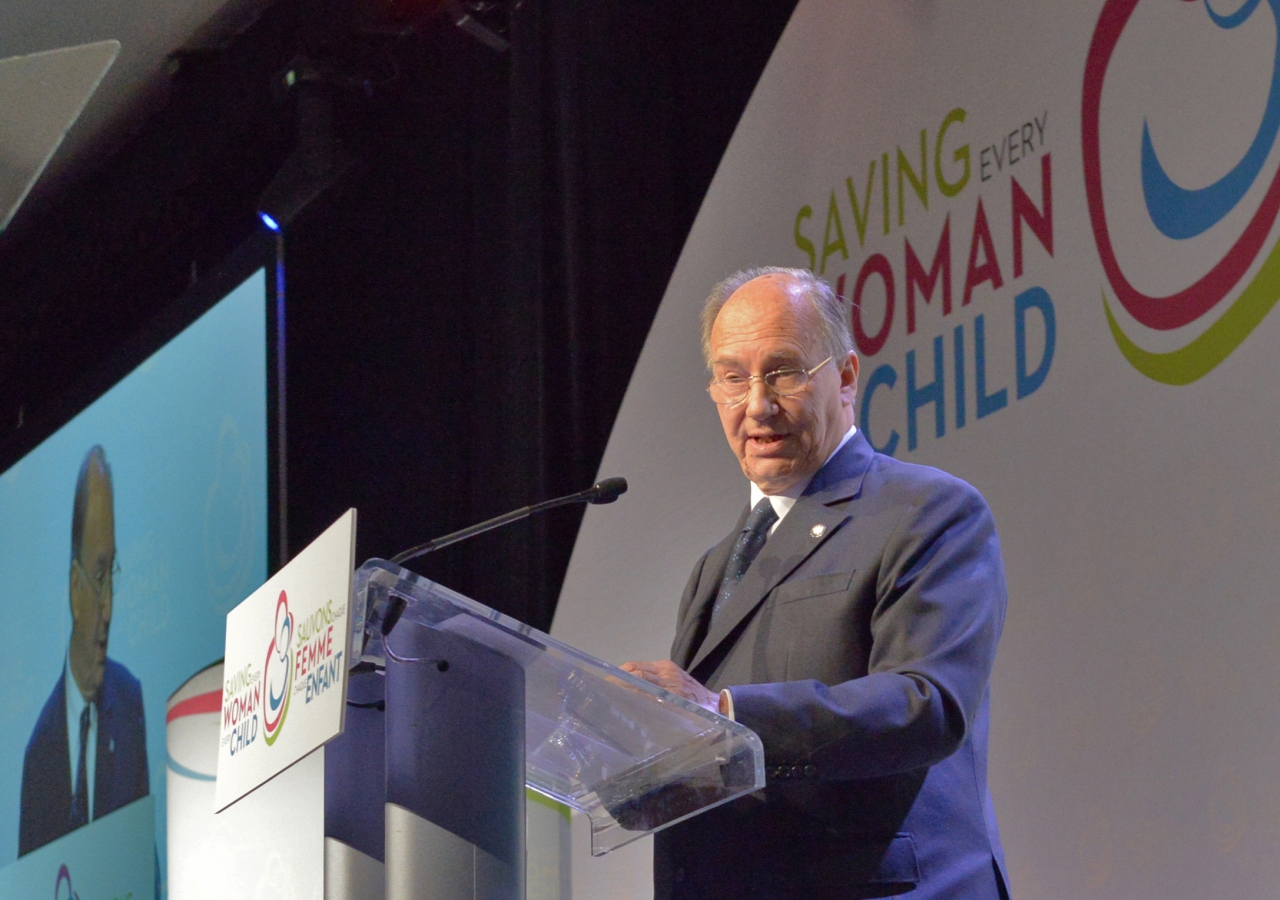“I am here today because of my conviction that improving maternal, neonatal and child health should be one of the highest priorities on the global development agenda,” said Mawlana Hazar Imam, who gave a keynote speech at the invitation of Canadian Prime Minister Stephen Harper. “I can think of no other field in which a well-directed effort can make as great or as rapid an impact.”
Following the 2010 gathering of G8 leaders in Muskoka, Ontario, Prime Minister Harper made maternal, newborn and child health Canada's top development priority. The Toronto summit, titled Saving Every Woman Every Child: Within Arm's Reach, focuses on reducing the preventable deaths of newborns, mothers and children under the age of five in the developing world.
Attending in his capacity as Chairman of the Aga Khan Development Network, Mawlana Hazar Imam joined a distinguished gathering of world leaders, including United Nations Secretary-General Ban Ki-moon, Tanzanian President Jakaya Kikwete, Melinda Gates, Co-Chair of the Bill & Melinda Gates Foundation, as well as the heads of the World Health Organization and UNICEF.
Praising the leadership of the Canadian government and expressing the Aga Khan Development Network's solidarity as a long term partner of Canada in this area, Mawlana Hazar Imam said that the Muskoka initiative has “led to an important new effort in which our Network has been deeply involved – in countries such as Afghanistan, Pakistan, Tanzania, Mozambique, and Mali.”
Hazar Imam explained that the AKDN's work builds a long history of experience stretching from the founding of the “Kharadhar Maternity Home in Karachi” by his grandfather, Mawlana Sultan Mahomed Shah, to the work of the Aga Khan University over the past thirty years “on the cutting edge of research and education in this field.”
AKDN “now serves some two and a half million people in 15 countries, with 180 health centres both in urban and rural areas, often in high-conflict zones, and embracing some of the world's poorest and most remote populations,” said Mawlana Hazar Imam. “Last year alone, these facilities served nearly 5 million visitors, inpatients and outpatients, with more than 40,000 newborn deliveries.”
After sharing lessons from the AKDN experience, Hazar Imam also acknowledged that the development community has fallen short of its post-millenium development goals. However, he expressed optimism and hope for the future.
“In no other development field is the potential leverage for progress greater than in the field of maternal and newborn health,” said the Imam.
He cited the case of the Aga Khan Health Services in the Afghan province of Badakhshan, where in less than a decade they have created a health system that “includes nearly 400 health workers, 35 health centres, two hospitals, serving over 400,000 people. Its community midwifery school has graduated over 100 young women.”
“The impact has been striking,” said Mawlana Hazar Imam. “In 2005, six per cent of mothers died in childbirth – that is 6,000 for every 100,000 live births.”
“Just eight years later, that number was down twenty-fold; for every 100,000 live births, death has gone from 6,000 down to 300,” announced Hazar Imam to resounding applause from the audience. “Meanwhile, infant mortality in Badakhshan has fallen by three quarters, from over 20 per cent to less than 6 per cent.”
Gaps still exist and risks associated with childbirth remain significant. But they can be addressed, asserted Mawlana Hazar Imam.
“When government and private institutions coordinate effectively in challenging a major public problem,” he observed, “we can achieve substantial, genuine, quantifiable progress – and fairly rapidly.









